48 reviews down excellent job everyone!
32nd Hall of Fame
X
Favorite Movies
I have one more left to watch and another to review. Is there a deadline to when this finishes up?
X
Favorite Movies
I have one more left to watch and another to review. Is there a deadline to when this finishes up?
X
Favorite Movies
X
User Lists
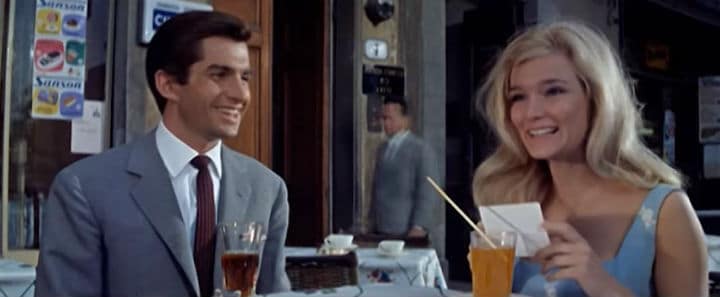
Light in the Piazza (1962)
This film is a bit of a curiosity, I went into it blind not knowing the director majority of the stars or plot. And it's an odd film, sort of a mismass of Douglas Sirk's mellodramas and a travel picture. It tells the story of a woman in Europe with her grown daughter who thanks to a horse accident has the mind of a child and the body of a very sexy woman. In Italy she is wooed and pursued by a young Italian Roman Catholic "boy".
The film tells the story from the perspective of the mother played by Olivia De Havlland. If this really was just a vacation film for the crew and the end result is a fine little film. Credit really should go to the director because the film is gorgeous.
Ofcourse the central idea for the film is messed up...the daughter has no ability to give consent so the idea of her marrying someone is ridiculous. You can also tell this was adapted from a novel as the chapter are very obvious and repetitive. Yet still I wasn't offended or bothered by it, it just reminded me of better works from this era.
C+/B-
X
Favorite Movies
X
User Lists
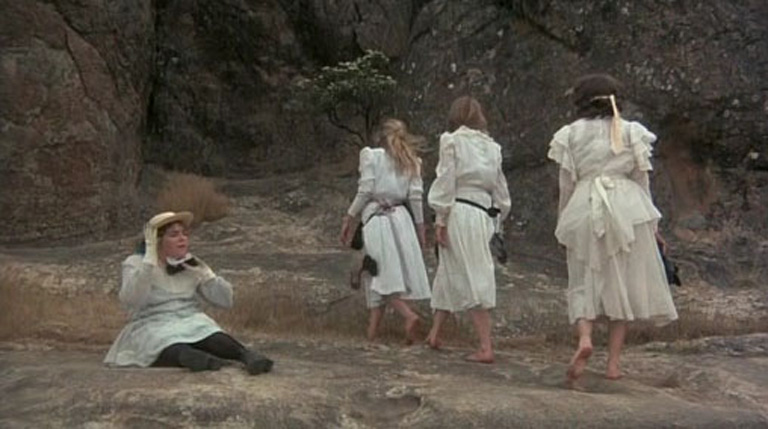
Picnic at Hanging Rock (1975)
Australia was a country that was late to the new wave party. Japan, Sweden, France, and Italy all had major movements in the 60's...it wasn't until the 70's that Australia came out with a series of signature prestige films. And I think we got lucky with a film like this.
The film tells the story of a group of girls who vanished on a field trip at the turn of the century. It's adapted from a novel (which does a better job translated than the previous film), This film has a number of things going for it that make it unique. It's got the look of a high end costume drama but the tone of a somber 40's gothic tale. A number of scenes and characters we get just glimpses of and are led to infer things about the characters. However the film never really tells us anything...this is a movie about the unknown and yet it contrasted with these vivid images and shots.
Subplots become major plots while the story goes in strange tangents and normally I would hate that but because the film is short and so gorgeous I didn't mind and actually enjoyed it. I rarity for me and my taste for film. Casting was a little hit and miss but as they were all unknowns I think it gives the film a different texture of sorts. You aren't distracted by a big star and headliner, it feels like a true ensemble piece.
A-
X
Favorite Movies
X
User Lists
Over halfway through Blowup. Then I'm hoping to get to Double Indemnity again soon even if it's out.
X
Favorite Movies
X
User Lists
Anybody have a link for Light in the Piazza? I can't find it anywhere.
X
Favorite Movies
Blowup
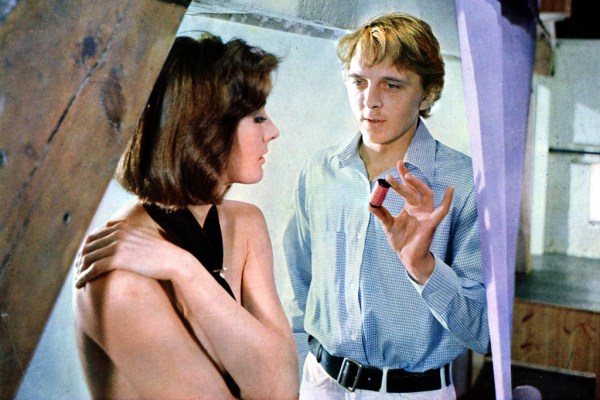
This is a film that has a lot of layers to it and even seeing it for a second time I feel like there's a lot I missed. I was caught up a lot in the look of the film, Antonioni has that show rather than tell trait at times and although it doesn't work for everybody it seems to be effective here. The main character was played quite well and I like how even after watching the film he seems quite mysterious. We don't actually learn a lot about him or know a lot of him to really make an informed decision on how to feel about him and that's ok to me. I guess I'm not a big fan of how the film ends but that's more of a minor setback and a feeling of just wanting to see more. Overall it's quite a thought provoking film. It's not on L'Avventura level for me but it's still a good one.
-

This is a film that has a lot of layers to it and even seeing it for a second time I feel like there's a lot I missed. I was caught up a lot in the look of the film, Antonioni has that show rather than tell trait at times and although it doesn't work for everybody it seems to be effective here. The main character was played quite well and I like how even after watching the film he seems quite mysterious. We don't actually learn a lot about him or know a lot of him to really make an informed decision on how to feel about him and that's ok to me. I guess I'm not a big fan of how the film ends but that's more of a minor setback and a feeling of just wanting to see more. Overall it's quite a thought provoking film. It's not on L'Avventura level for me but it's still a good one.
-
X
Favorite Movies
X
User Lists
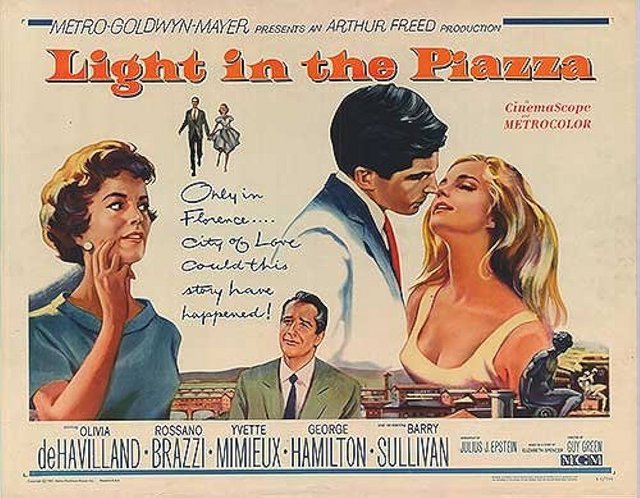
Light in the Piazza - 1962
Directed by Guy Green
Written by Julius J. Epstein
Based on a novel by Elizabeth Spencer
Starring Olivia de Havilland, Rossano Brazzi, Yvette Mimieux, George Hamilton & Barry Sullivan
There are spoilers in this review
A summer in Florence is a fine time and place to fall in love, and nothing much should ever stand in the way of true love - or at least, that's a fine sentiment if you overlook the myriad complexities and thousand instances of "unless" you might care to mention for various reasons. In Light in the Piazza, the circumstances are curious - to say the least. Meg Johnson (Olivia de Havilland) has a 26-year-old daughter, Clara (Yvette Mimieux), who has the mental age of a 10-year-old due to a kick in the head a Shetland pony once gave her, leaving a lasting physical scar and a permanent disability. Fabrizio Naccarelli (George Hamilton) becomes enamoured with her - to the point of checking with hotel staff to find out where the Johnson's are going each day. The longer this goes on, the more uncomfortable Meg becomes with a flowering courtship she should nip in the bud - but doesn't. When she sees the way the two act together, and meets Fabrizio's father Signor Naccarelli (Rossano Brazzi) she finds it hard to tell him the truth about Clara, and the longer she waits, the deeper into the situation they all become.
I particularly enjoyed the moral questions that were posed in Light in the Piazza, and the way Meg seems willing to cross a kind of Rubicon of 'going against accepted morals' by not behaving the way she strictly should, all for the good of Clara - we hope. The movie had me fooled many times, and I can't tell you the number of instances when I was screaming at this character to tell either the younger or elder Naccarelli (or anyone in the Naccarelli family) the plain facts about her daughter. Then again, at the very start of the film I thought Fabrizio was up to no good, and looking for something cheap - simply because of his dishonesty and the way he stalked these two tourists. Am I that bad at affirming the motivations of a character in a movie? Maybe. Or maybe when I learned about Clara's condition, I immediately felt protective of her and how the men in Florence would view her - a 26-year-old hottie with a vibrant attitude and trusting manner. As Meg tried to discourage Fabrizio, I thought she wasn't going far enough. I'm sure that in some countries at the time, she might have been within her rights to shoot him. (I'm kidding of course.)
Once I realised what was really going on in these character's minds, I did a complete 180 degree turn, and was demanding that Fabrizio be allowed to marry Clara. By then we'd met Clara's father, Noel (Barry Sullivan) - a stern, no-nonsense man without a romantic bone in his body. He's set to send Clara into an institution once the two get back to the States, just to get her the hell out of the nest. Obviously I reacted to this in the exact way the movie wanted me to, and I stared daggers every time Sullivan was onscreen. But at the same time - was any of this right? Isn't not telling the Naccarelli's about Clara's condition a kind of massive no-no? I mean, I get the fairy-tale - but that question both ate me up and delighted me in this movie - and good on the movie for doing that to me. Movies are great for posing moral questions that have both positive and negative outcomes. It was posing a huge one, and while it rested on Meg Johnson's shoulders it was up to Olivia de Havilland to bear the brunt of it - which she did magnificently. A combination of terror and delight lights up her face every time she's staring into that abyss.
In the meantime, the Johnsons do go to Rome for a week or so on a sojourn - allowing Czech cinematographer Otto Heller (who had worked on Peeping Tom, The Ladykillers and Alfie in England) to use more fabulously fabled locations as backdrops for this drama. The score from Mario Nascimbene, busy at the time, has an Italian flavour to it, and is always cheerfully light and breezy. The handsome George Hamilton was nominated for a BAFTA - but the film remains curiously underseen - it wasn't a box office success, but it's good enough to have at least deserved a moderate amount of fortune. Our time spent in the Piazza della Signoria is really fantastic, and adds a touch of going on a tour in Florence - to which is added the Uffizi Gallery, and once we get to Rome the Via Veneto and Roma Ostiense railway station. Hell, while in the Piazza, Olivia de Havilland, in character, throws out a fact or two as a kind of audience guide. All very romantic and continental - and nice added touches to the movie.
So, overall a really energizing, kind of morally ambiguous tale of whether a mother informs or withholds information from the family of the guy courting her mentally disabled daughter. Did she do the right thing or the wrong thing in the end? I guess that depends on perspective, but only to a degree. It's a nice change of pace though, to see a movie where a character takes that particularly enigmatic route. Other than that it's also a strange romance, scenic tour, and a movie which questions just how we should treat people with this type of mental affliction. I mean, should people with the mental age of 10 be treated as children, or should they be treated as adults when they grow up? This seems to have been an ongoing question amongst the Johnsons, and by the sounds of it one they haven't sorted out yet. Olivia de Havilland really infused her character with the yearning that her daughter be happy, and she knew that being in an institution would have curbed most hopes for a really great future, and sunny outlook. To do this for her daughter, she was willing to go against the grain and really surprise everyone - me included. Light in the Piazza had me very unsure at first, and completely befuddled by Meg - it's only later where it becomes clear. It was something a little different, and a little daring, and interesting. Against the grain.
__________________
Remember - everything has an ending except hope, and sausages - they have two.
Latest Review : Before the Rain (1994)
Last edited by PHOENIX74; 11-06-23 at 12:39 AM.
X
Favorite Movies
X
User Lists
Missing

Much like Cricket, when this was released I thought it was a missing child movie which is why I never had any interest in it. Well, now I know it's a political thriller about a man who goes missing during the Chilean coup of '73. Sissy Spacek is the missing man's wife and she gets Jack Lemmon, the missing man's father, to come down to Chile to help search for him. It's an oil and water mix at first with Lemmon believing you just follow the proper channels -Trust us, we're the good guys - and they'll get to the bottom of it while Spacek, being a bit more in tune with what's going on in Chile, not too subtly lets him know that he doesn't know jack squat about who and what he's dealing with.
Spacek, as usual, was great. She's the rock in the film. Lemmon was good but I have to admit to liking his comedic performances a little better. His character certainly has the more dramatic change. The deeper into it they dive the more he finds out about who his son really was and who the good guys really are. I thought some of the supporting cast was a bit stiff in the acting department but some really shined. This is a very good film with an ending that leaves you thinking "Boy, that's a shocker!"
Spacek, as usual, was great. She's the rock in the film. Lemmon was good but I have to admit to liking his comedic performances a little better. His character certainly has the more dramatic change. The deeper into it they dive the more he finds out about who his son really was and who the good guys really are. I thought some of the supporting cast was a bit stiff in the acting department but some really shined. This is a very good film with an ending that leaves you thinking "Boy, that's a shocker!"
X
Favorite Movies
If we exclude Allaby, we are at 47/100 reviews in! Great job everyone!
I should have a review for The Little Girl Who Conquered Time by tomorrow as well!
I should have a review for The Little Girl Who Conquered Time by tomorrow as well!
X
Favorite Movies
X
User Lists
The Little Girl Who Conquered Time
I was kind of astonished to find out this was from the same director that directed Hausu, which is one of my favorites actually. This one starts off slow but in the end it's a fairly enjoyable story with good performances. The visuals are quite frustrating in this one. I could look past it with Hausu because I found a lot of those scenes comical but with this movie it seemed to kind of put an overall damper to how I feel about it. Not a deal breaker but still. The film seemed to waver back and forth between me not caring at all and then me being glued to what is happening so there is that. I hated the special effects showing the time travel. I get it's from the 80s but it just looked stupid. In the end, a nice story is what saves the day and the fact that it just feels like an anime movie is a bonus to me.
+
I was kind of astonished to find out this was from the same director that directed Hausu, which is one of my favorites actually. This one starts off slow but in the end it's a fairly enjoyable story with good performances. The visuals are quite frustrating in this one. I could look past it with Hausu because I found a lot of those scenes comical but with this movie it seemed to kind of put an overall damper to how I feel about it. Not a deal breaker but still. The film seemed to waver back and forth between me not caring at all and then me being glued to what is happening so there is that. I hated the special effects showing the time travel. I get it's from the 80s but it just looked stupid. In the end, a nice story is what saves the day and the fact that it just feels like an anime movie is a bonus to me.
+
X
Favorite Movies
X
User Lists
The Banshees of Inisherin (2022 Martin McDonagh)
At the tail end of the Irish Civil War in the spring of 1923, on the Irish isle of Inisherin. Fiddler Colm Doherty abruptly begins ignoring his lifelong best friend and drinking buddy Pádraic Súilleabháin. Colm has decided that Pádraic, a man respected by the islanders, is too dull for him, and he would rather spend the remainder of his life composing music and doing things for which he will be remembered. Pádraic is devastated and refuses to accept the rejection, while Colm only becomes more resistant to his old friend's attempts to make amends. Colm eventually gives Pádraic an ultimatum: every time Pádraic comes to talk with him, Colm will cut off one of his own fingers...
Reuniting the duo from McDonagh's In Bruges, I found this to be a welcome back for two characters with great chemistry even though they play slightly different versions of themselves. Plenty of scenery to chew on and dialogue to digest, McDonagh creates an atmosphere in his films that are easy for me to jive with, this one is no different.
X
Favorite Movies
Departures (2008)
X
Favorite Movies
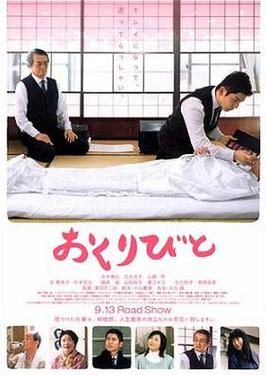
Departures (Okuribito) - 2008
Directed by Yōjirō Takita
Written by Kundō Koyama
Starring Masahiro Motoki, Ryōko Hirosue, Tsutomu Yamazaki
It helps a little to know about a specific Japanese trait when considering 2008 film Departures - to the Japanese, death and dead bodies are a taboo, and as such the nōkanshi (traditional Japanese ritual mortician) are particularly unpopular. Sadly, working as one could almost be considered shameful - but this film shows the work in a new light, making it very dignified, reverent and even beautiful. Daigo Kobayashi (Masahiro Motoki) stumbled into the job by answering a newspaper advertisement about work regarding "departures" (the ad was meant to reference "the departed"), and old hand Ikuei Sasaki (Tsutomu Yamazaki) regards the somewhat taciturn Daigo, upon first sight, as well equipped for the job. His wife, Mika (Ryôko Hirosue), at first doesn't know about this new career path - and her husband is too afraid to just come out and tell her. When she does find out, and demands that he quit, Daigo has come to find great satisfaction and spiritual peace working in this way - so much so that her threats to leave him may not be enough. But what if she were pregnant? Will Sasaki keep his young protégé?
We see a lot of the almost meditative process of "encoffining" in this movie - it's not one to just skip over the procedure to focus on the melodrama, and I like that aspect of Departures. Once you've seen the whole film, it feels like we know most of what the ceremony entails. It's not just ritualistic - but a mix of practical mortician work and spiritual ceremony. The dead bodies are young, good looking people most of the time - tragic in real life, but obviously much easier for us to not be too disturbed watching the movie. It wouldn't put us in the right mood at all for what Yōjirō Takita is trying to do here. There's a lot of humour added also - such as the video-taping of the instructional training episode, where Daigo appears quite embarrassed in what looks like a diaper, so he can play a corpse. A moment where comedy and more exposure to the process blend and kill two birds with one stone. It's all something both uniquely Japanese in some aspects and universal in others. Families during the process are of course emotional, but often get a lot out of this last shared ceremony before saying goodbye for good.
Something which added a great deal to these beautiful moments in the film was the score from Joe Hisaishi, which very much emphasised the sound of the cello in the music. When the film starts, Daigo has been trying all his life to become an accomplished player - and the result of all of his efforts over the years has been a place in a second-rate orchestra which disbands due to a lack of an audience willing to come and listen to them. This cello music seems to represent the character and his harmony with the world, and it's like he's found something more in tune with himself in becoming a nōkanshi. We hear the cello music in a much more melodic way as the film progresses, and during one fantastical sequence which features great cinematography from Takeshi Hamada, we see him outside playing the instrument during a glorious day, with a great mountain vista in the background as the camera swirls about him. Editor Akimasa Kawashima includes many fading dissolves so the playing seems to represent time passing, and the harmony Daigo now has with his work and life in general. It's probably Departures' greatest crowning moment.
Masahiro Motoki plays shy and reserved really well - and I especially enjoyed watching his struggle to come to terms with encoffining. His first job happens to be a corpse left rotting for weeks before it was discovered - and his battle to keep his wits added a little comedic touch to a bad situation. The final scene involving Daigo's father was off the charts - I was tearing up. Ryōko Hirosue was sweet and maddening as Daigo's wife Mika - who really can't be blamed for her entire culture's inability to come to terms with the aftermath of death. I loved Tsutomu Yamazaki as the aging mortician - encouraging his young student with a great deal of patience and understanding. Both actors brought a great deal of dignity to each ceremony that they had to perform before the cameras - there must have been a lot of setting up for moments we'd see very briefly in the film. I also enjoyed the performance of Kimiko Yo as the NK Agent secretary for the pair - part of a tight-knit family, helping deal with the problems the two encoffiners might be having to deal with.
The film spends a good deal of time exploring the relationships we have with family and friends, even when they're distant and estranged. In the film Daigo goes to a public bath he hasn't been to for many years, and reaquaints himself with Tsuyako Yamashita (Kazuko Yoshiyuki) and a former classmate (played by Tetta Sugimoto) who becomes another person who demands he quit, all the while refusing to contemplate the father who left him and his mother for another woman (with anything other than barely suppressed rage.) Death will play an important part with how these feelings and relationships evolve over time, and how it often forces a person to acknowledge a painful past. The great thing about Departures is that it shows us how Daigo finds and nurtures a job that seems to be his calling, while the film as a whole manages to demystify the nōkanshi and show how dignified and important their work is. It shows the world how loving, spiritual and artistic the whole process happens to be, and shows this previously despised class of professionals in a new and worthy light.
So yeah - Departures has something of everything. Enjoyable comedy and a sense of melodrama that can really melt the heart in the film's closing stages - and I must emphasise that I didn't find it too soppy or melodramatic in it's closing scene. It was vital. It has as it's core narrative the story of someone taking on an unlikely profession which he seems doomed to fail at. His wife and friends demand he quit, and the man himself is nearly throwing up at the thought of what he must confront, and do. It's box office success in Japan - when financing was so difficult to find due to the lack of appeal there'd be in this kind of film - is a real feelgood story. It was assumed people would stay away - but the quality of the film itself opened everyone up and the country as a whole shared the experience of visiting a topic that would be regularly ignored and hushed up up until that point. Loved that music - it still plays in my ears - and it was filmed with great restraint when needed, and liberation when called for. It won Japan it's first Best Foreign Feature Oscar, and proved the many doubters wrong.
My favourite quote was about the salmon. Seeing them swim upstream and then float back down, lifelessly, he says "It's kind of sad... to climb only to die. Why work so hard if you're going to die." He's given an answer from someone who sees it differently : "I'm sure they want to go back... to their birthplace." The cycle of life complete - we all return. It's the most natural aspect of life, and shouldn't be feared, avoided, or railed against. Instead, it should be dignified, respected and an occasion for a family to bond and heal together.
X
Favorite Movies
X
User Lists
The Banshees of Inisherin (2022 Martin McDonagh)
At the tail end of the Irish Civil War in the spring of 1923, on the Irish isle of Inisherin. Fiddler Colm Doherty abruptly begins ignoring his lifelong best friend and drinking buddy Pádraic Súilleabháin. Colm has decided that Pádraic, a man respected by the islanders, is too dull for him, and he would rather spend the remainder of his life composing music and doing things for which he will be remembered. Pádraic is devastated and refuses to accept the rejection, while Colm only becomes more resistant to his old friend's attempts to make amends. Colm eventually gives Pádraic an ultimatum: every time Pádraic comes to talk with him, Colm will cut off one of his own fingers...
Reuniting the duo from McDonagh's In Bruges, I found this to be a welcome back for two characters with great chemistry even though they play slightly different versions of themselves. Plenty of scenery to chew on and dialogue to digest, McDonagh creates an atmosphere in his films that are easy for me to jive with, this one is no different.
X
Favorite Movies
X
User Lists
Dial M for Murder
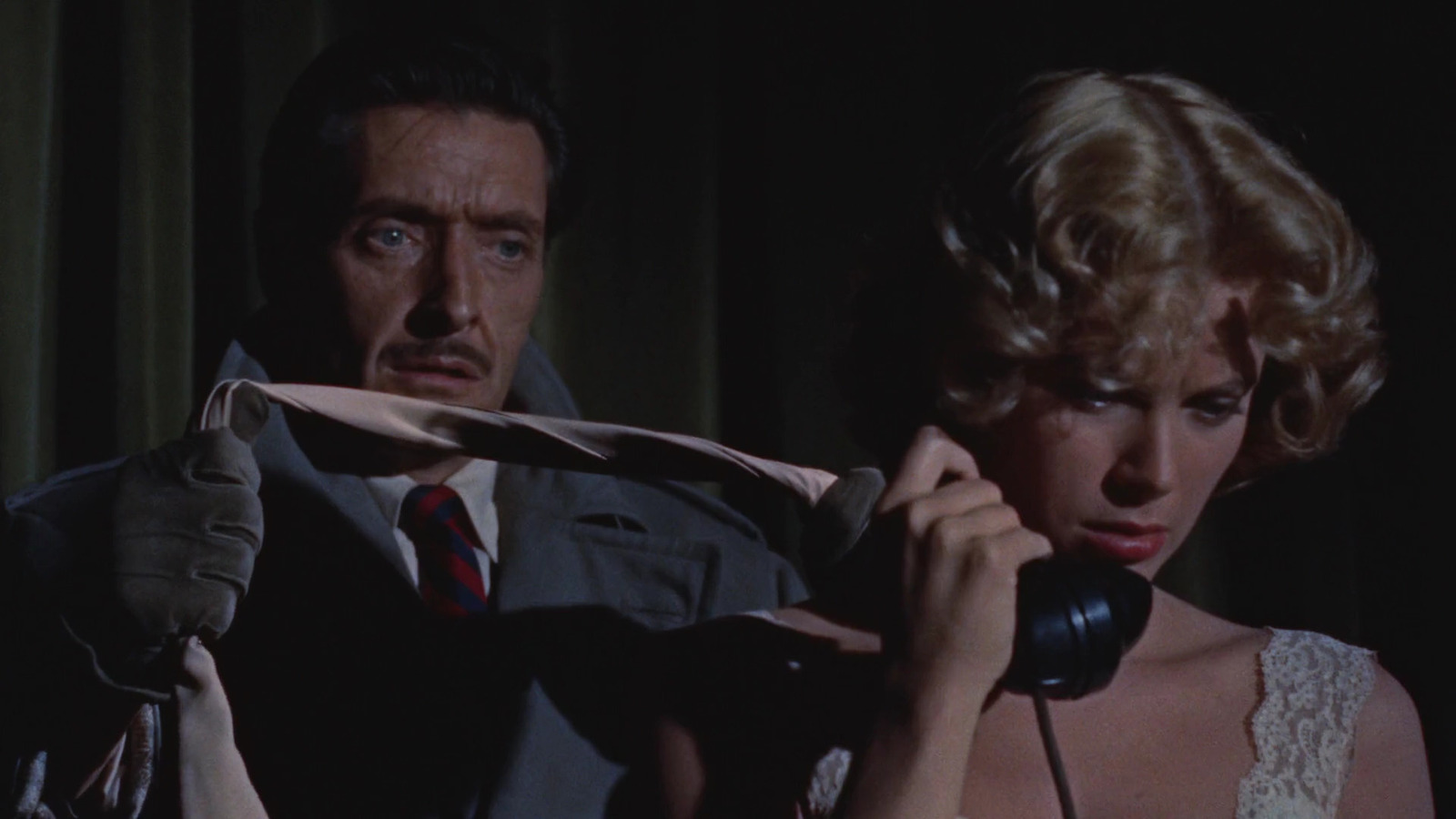
At the beginning of the film I admit that I thought I might be downgrading the film because the banter between Wendice and Swann seemed to be a bit monotonous and unbelievable. Him convincing Swann to do this was just all to impractical. But once we get to that scene where he tries to strangle Grace Kellys character then the first really turns it up a notch. The film relies on heavy dialogue and that is at its best when my favorite character the investigator played by John Williams shows up. Obviously Midland is great and Grace is beautiful but there is a heightened elevation to the film with the scenes that Williams is in. It's quite fun to see Milland on a path where he is doomed, then finds a way out of it and then falls to his conclusion just when he thinks he's on the safe side. It's a great screenplay for me and one of the Hitchcock films I'll always come back to.

At the beginning of the film I admit that I thought I might be downgrading the film because the banter between Wendice and Swann seemed to be a bit monotonous and unbelievable. Him convincing Swann to do this was just all to impractical. But once we get to that scene where he tries to strangle Grace Kellys character then the first really turns it up a notch. The film relies on heavy dialogue and that is at its best when my favorite character the investigator played by John Williams shows up. Obviously Midland is great and Grace is beautiful but there is a heightened elevation to the film with the scenes that Williams is in. It's quite fun to see Milland on a path where he is doomed, then finds a way out of it and then falls to his conclusion just when he thinks he's on the safe side. It's a great screenplay for me and one of the Hitchcock films I'll always come back to.
X
Favorite Movies
X
User Lists
John is the first one to finish all the noms! Congrats!
 Congrats JW
Congrats JW
X